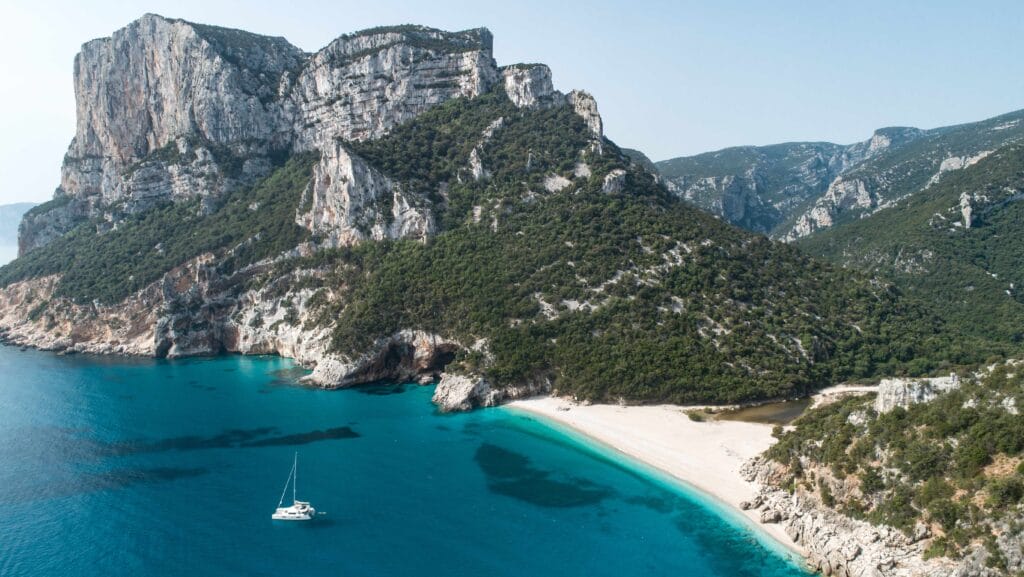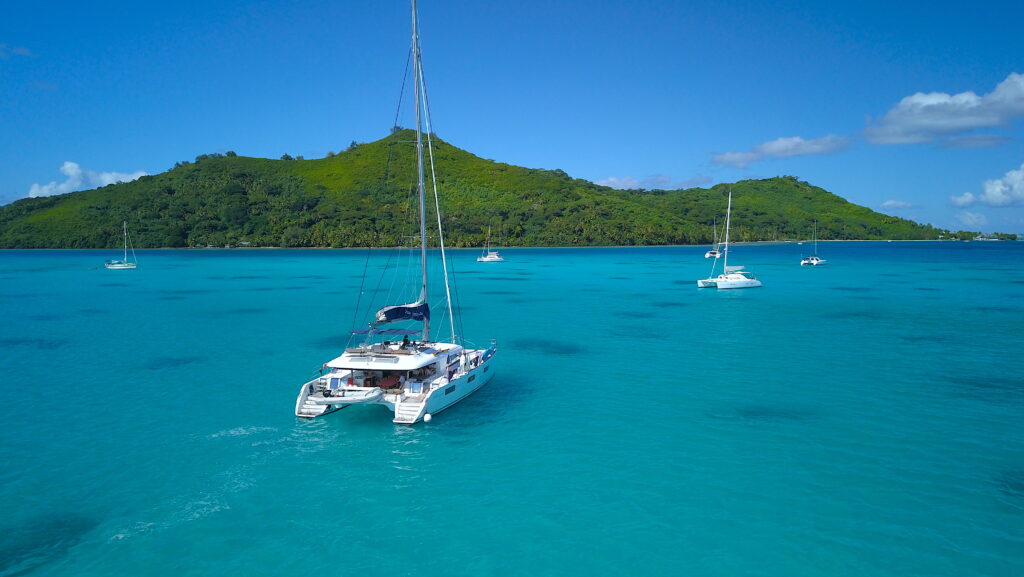
Marine sustainability must retain spotlight in time of political change, argues Dream Yacht Worldwide

The marine industry’s economy is tied to sustainability, writes Loïc Bonnet, founder of Dream Yacht Worldwide. If the wider sector, and marine tourism industries fail to act, we risk not only ecological disaster, but also the collapse of the economy we depend upon.
My love for sailing and the ocean were the main drivers for starting Dream Yacht as a small charter business in the Seychelles 25 years ago, in 2000. For a long time in the years before, economic growth had taken precedence over any concern for nature and the oceans in which we, as the marine industry, operated. It was only in the 1990s that society’s mutual environmental sins finally prompted a wake-up call and a shift in thinking towards environmental protection and sustainability.
I am watching with concern as now, in today’s fast-paced news cycle, sustainability seems to be quietly drifting out of the spotlight again, overshadowed by immediate financial and political concerns. Tariffs, taxes, elections, and economic downturns dominate headlines, while environmental issues—especially those affecting the oceans—receive diminishing attention. However, in an era of increasingly extreme weather patterns, rising sea levels, and marine biodiversity loss, sustainability must remain at the forefront of global consciousness and our consciousness in the marine industry.
Are brands doing enough?
For industries reliant on the health of the seas, such as ours, environmental responsibility isn’t just an ethical choice—it’s a business imperative.
With the introduction of the first electric yachts to our charter fleet in 2023 Dream Yacht Worldwide is setting just one small example for steps the whole industry (from suppliers to shipyards to marinas) can take to actively lower their carbon footprint. Sustainability is not a luxury to prioritise only in times of economic stability . . . it is an urgent necessity, especially when our oceans are at stake.
 Loic Bonnet, founder, Dream Yacht Worldwide
Loic Bonnet, founder, Dream Yacht WorldwideMarine industry needs urgent sustainable action
The impact of climate change is already being felt across marine operations. Storms are more frequent and intensifying, coastal infrastructure is under threat, and regulatory bodies worldwide are tightening emissions standards. The International Maritime Organisation (IMO) is pushing for a 50 per cent reduction in greenhouse gas emissions from shipping by 2050, while the European Union is enforcing stricter carbon pricing on maritime transport. The yachting and charter industry, though smaller in scale, is not immune to these pressures.
Ignoring sustainability now will lead to greater financial and operational consequences in the future.
Coastal tourism is a multibillion-dollar industry that relies on healthy marine ecosystems. Polluted waters, declining fish populations, and coral reef destruction will inevitably impact business—from yacht sales to charter demand.
Electric yachts, like the ones by Dufour and Fountaine Pajot in our fleet, or new cruising concepts like the one of Groupe Beneteau, represent a significant shift in the industry. They operate with silent, emission-free propulsion, reducing the ecological impact on marine habitats.
Traditional diesel-powered yachts contribute to water and air pollution, but electric alternatives help preserve the pristine beauty of sailing destinations. Additionally, with the development of solar and wind-assisted charging technology, electric yachts offer a glimpse into a more sustainable future for boating enthusiasts worldwide.
Sustainability isn’t just the responsibility of fleet operators, however. Shipbuilders, equipment suppliers, and marina operators all have a role to play in reducing our industry’s environmental footprint.
I can see potential for improvement in the following areas, for example:
- Sustainable boatbuilding to reduce waste and emissions
- Electrification and hybrid technology projects
- Sustainable marina and infrastructure developments

Economic and environmental case for sustainability in marine industry
Skeptics argue that marine sustainability efforts are expensive and impractical, particularly during economic uncertainty. I believe that environmental responsibility and financial viability are not mutually exclusive. In fact, sustainable practices often lead to long-term cost savings and business resilience.
Consumer preferences are shifting, and eco-conscious customers are demanding greener alternatives. Charter clients and yacht buyers increasingly ask about fuel efficiency, hybrid options, and carbon offset programmes.
Companies that ignore this trend risk losing market share to competitors that embrace sustainability.
Financially, sustainability also makes sense. Fuel-efficient designs reduce operating costs over time, while investments in renewable energy lead to long-term savings. Governments worldwide are also offering incentives for green investments, from tax breaks for electric vessels to funding for clean marina initiatives. Companies that act now can position themselves to benefit from these incentives while avoiding future regulatory penalties.
Furthermore, destinations and marinas that maintain their environmental integrity attract higher tourism revenue in the long run. Pristine waters, healthy marine life, and unspoiled coastlines remain powerful draws for travellers.
If marine tourism industries fail to protect these assets, they risk not only ecological disaster but also the collapse of the very economy they depend upon.
Collective responsibility key to marine sustainability
While many companies in our industry are already making commendable efforts, the fight for ocean and marine sustainability requires more than individual corporate initiatives. It demands widespread awareness, policy changes, and consumer responsibility. Governments, businesses, and individuals must work together to prioritise sustainability over immediate financial concerns.
The conversation around sustainability cannot afford to fade into the background. Policymakers, businesses, and individuals must continue advocating for greener solutions, even when financial pressures demand attention elsewhere. The health of our oceans—and by extension, the health of our planet—is not a secondary issue.
Investment efforts in electric yachts, boat recycling, lean manufacturing and bio-based resins and coatings are just some examples to demonstrate that progress is achievable, even in a world where economic concerns often overshadow environmental urgency. If we all follow suit, we can shift the tide toward a future where marine sustainability remains an unwavering priority, even today.
As the world grapples with pressing economic and political challenges, we must not let sustainability become an afterthought. The challenges facing our oceans are not going away. Keeping sustainability at the forefront isn’t just an environmental necessity; it’s a commitment to our businesses, our customers, and future generations who deserve to experience the beauty and bounty of the seas as we know them today.
The post Marine sustainability must retain spotlight in time of political change, argues Dream Yacht Worldwide appeared first on Marine Industry News.

